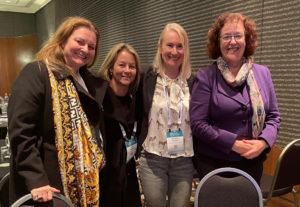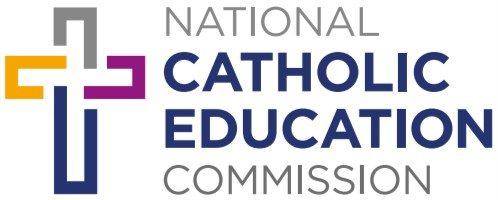Catholic education’s national priorities and advocacy were the focus of a keynote and masterclass led by national Catholic education executive director Jacinta Collins at the NSW/ACT Catholic Principals Conference in Wollongong last Thursday.
In her keynote address, Opportunities for Hope and Growth Despite the Headlines, Jacinta highlighted learning gains, enrolment growth, higher than average attendance, retention, and school completion rates as positive signs of hope and growth, while recognising the challenges for improving learning outcomes, teacher workforce issues, and other concerns such as religious freedom.
Speaking to the proposed reforms by the Australian Law Reform Commission (ALRC), Jacinta told principals they “would remove or severely restrict the ability of Catholic schools to prioritise the employment of staff and enrolment of students from our faith background, or to operate and teach in accordance with our Catholic ethos”.
“The National Catholic Education Commission’s (NCEC) submission addressed the deficiencies in the ALRC consultation paper and stressed that a parent’s right to choose a school that reflects their values and beliefs must be protected and respected in line with International Law.
“Catholic schools should be free to be Catholic and operate and teach according to their ethos.”
Following the keynote, Jacinta led a masterclass for principals on The Politics of School Leadership, highlighting the need for schools to be actively involved in ongoing political engagement and advocacy.
“Catholic education educates one in five students and is the largest faith sector and the largest single provider of schooling outside of government, employing more than 104,500 staff in education,” Jacinta said.
“With 44 new members of parliament and senators in office since the last federal election, political engagement needs to be a priority for our school leaders to inform and educate new parliamentary representatives and update existing politicians and their staff on key issues for Catholic schools.
“It is important to drive home the complexity of the issues affecting the Catholic sector, particularly school funding and parents’ contribution through school fees, religious freedom, and the governance and structure of the Catholic sector,” she said.

“Advocacy on school funding, school reform, school choice, not-for-profit status and religious freedom ensures the Catholic school perspective is considered in decision-making and policy setting, whether it be through national and state representation, submissions to inquiries and reviews, or capital works planning at a local level.”
Principals participated in a quiz to test their political savvy and were invited to develop a political engagement strategy for their school.

St Mary’s Star of the Sea Catholic Primary School, Hurstville principal Rebecca Besly said the masterclass provided an overview of the political landscape with regard to Catholic education.
“It was important to hear how we at a school level can engage and improve our engagement so that we can continue to offer a wonderful educational setting for those parents who choose a Catholic education.”
Recently, Jacinta also addressed the Catholic Secondary School Principals Board and the Australian Catholic Primary Principals Association on the NCEC’s national priorities, including religious freedom, the ALRC’s review, the National School Reform Agreement, funding issues and early childhood education and care.
Images (top) NCEC executive director Jacinta Collins; (middle) advocacy and political engagement masterclass attendees: St Mary’s Star of the Sea Catholic Primary School, Hurstville, principal Rebecca Besly; Good Shepherd Catholic Primary School, Hoxton Park, principal Leonie Sewell; St Mary’s Catholic Primary School, Georges Hall, principal Monica Palmer and NCEC executive director Jacinta Collins; (bottom) NCEC executive director Jacinta Collins addresses the NSW/ACT Catholic Principals Conference.
